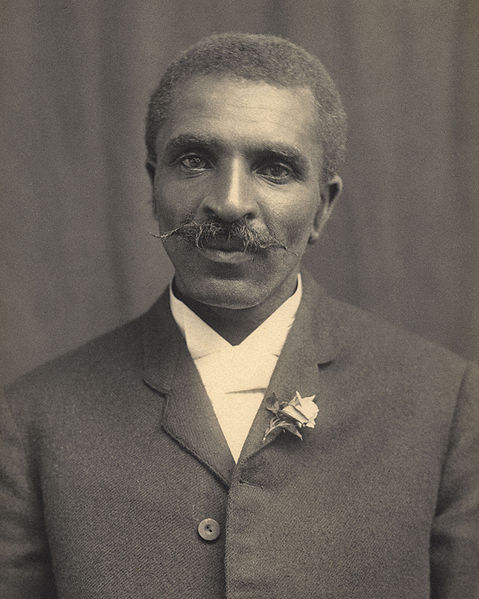A sneak preview of the new George Washington Carver Documentary

https://commons.wikimedia.org/wiki/File:George_Washington_Carver_c1910.jpg
George Washington Carver
April 25, 2018
Yearly meetings with Henry Ford, artistry, partaking in conservation research, helping craft a vegetarian diet for Gandhi, all of these things can be attributed to George Washington Carver.
These were discussed in the documentary film “George Washington Carver: An Uncommon Life” produced by Laurel Bower and associate produced by Paxton Williams, an Iowa State alumnus who has portrayed Carver for 19 years. The film previewed on Wednesday April 25 in the Great Hall of the Memorial Union.
Bower has worked for Iowa Public Television for 23 years, and her primary focus has been producing documentaries. Bower set out to portray the many facets of George Washington Carver outside of his work with peanuts and science as a whole, with Carver being referred to as a “renaissance man” within the film.
A 30 minute portion of the documentary was shown at the event. The documentary will be premiering in its full hour length on April 30 at 8 p.m. The portion of the documentary that was shown detailed much of Carver’s early life, as well as his educational journey.
The film also discussed some of the complexities of George Washington Carver, talking about his reclusiveness, as well as his simplicity and humility. According to the documentary, Carver was curious since childhood, spending a great deal of his time as a child out in the Carver woods.
The film also touched on how Carver was separated at a young age from his mother and lost his father before he was born. Both of Carver’s biological parents were slaves, but he ended up being raised mostly by Susan Carver.
Carver was a sickly child, and when he was found he had come down with whooping cough. According to the film, Carver was always interested in education. Carver walked eight miles out of his hometown to attend school, as the local schools would not admit him because of his race.
The documentary discussed Carver’s hardships as well. According to the documentary Carver stated that he was an “orphaned child of a despised race.” On his path to education, Carver also witnessed the lynching of a black man in Fort Scott, Kansas. He departed from the town that night.
Carver eventually came to find admission at a Kansas University but was immediately turned away when they realized he was black. Carver then found himself in Iowa where he attended Simpson College studying art. Eventually Carver arrived at Iowa State and obtained both a bachelor’s and master’s degree and studied to become an agricultural chemist.
The documentary also discussed Carver’s deep and strong faith. According to the documentary Carver’s faith was also a great source of strength and motivation for him, and he constantly worked for the betterment of humanity.
Bower said that the second half of the documentary will elaborate further on Carver’s work as a conservationist, continue to delve into Carver as a person and detail his long career at Tuskegee University.
A Q&A was also held after the preview of the documentary, where the process of making the documentary was discussed among other aspects of George Washington Carver including his voice and his impact on his students and the people he met.






